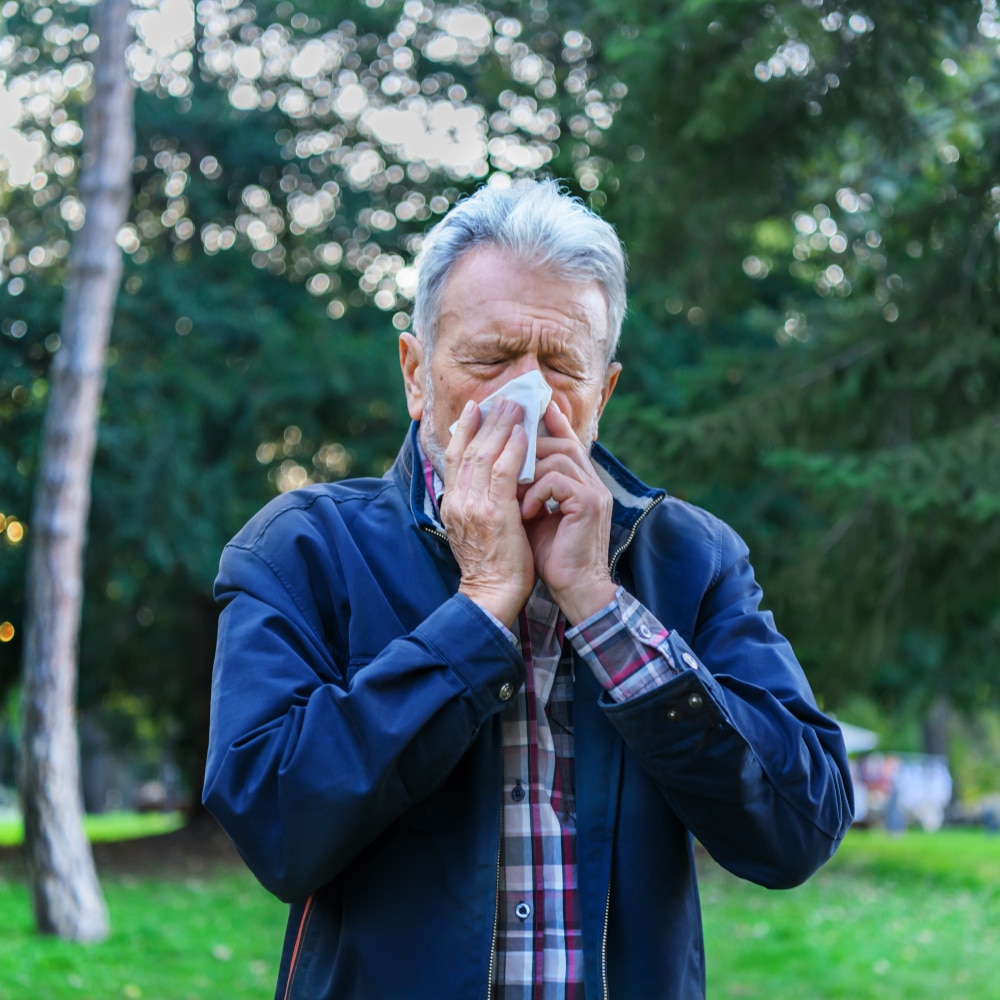The Centers for Disease Control and Prevention reports, “About one-quarter (25.7%) of adults had a seasonal allergy.” If you have seasonal allergies during the summer, you’re probably wondering what you can do to prevent symptoms. We provide a summer checklist for allergies below.
Deep Clean Your Home

It’s a common misconception that you will only experience allergy symptoms after spending time outdoors, when in reality, indoor allergens can be a major trigger, especially during summer months. To minimize the presence of allergens in your home, you can:
- Vacuum and dust regularly.
- Avoid keeping knickknacks that can collect dust.
- Replace curtains and carpet with blinds and hardwood.
- Bathe pets once a week and keep them out of bedrooms.
- Wash bedding in hot water weekly.
- Store food in airtight containers.
- Throw out old food promptly.
Purify the Air
To purify the air, run your central air conditioning. If you don’t have central air conditioning, you can invest in a window unit or purchase a portable air cleaner with a high-efficiency particulate air (HEPA) filter from Budget Heating, Cooling & Plumbing on Mid Rivers Mall Dr in Saint Peters.
After cleaning with chemicals, air out your home. When it’s appropriate, clean with baking soda or vinegar instead of harsh chemicals. Remember also to never mix cleaners together.
In addition, keep airborne irritants, including incense, air fresheners, perfume, scented creams and fresh paint out of your home if you’re sensitive to them.
It’s also important to avoid smoking indoors. Better yet, you can quit smoking altogether.
Monitor Pollen Counts
You can monitor pollen counts using the National Allergy Bureau’s website.
When pollen counts are high, usually on dry, windy days and between the mid-morning and late afternoon hours, avoid opening windows or spending time outdoors.
See an Allergist
Allergists can recommend treatment for your allergies if the above strategies don’t provide enough relief. Not only can you practice avoidance of known triggers, but you can also try:
- Taking medications. Certain oral antihistamines and corticosteroid nasal sprays can be taken regularly to prevent and treat allergies. Talk to your allergist about which medications are safe for long-term use.
- Undergoing immunotherapy. Immunotherapy is a long-term solution for allergies that works by helping your immune system build up a tolerance to allergens over time.
For more information or to schedule an appointment with an expert allergist, call Midwest ENT Centre today.